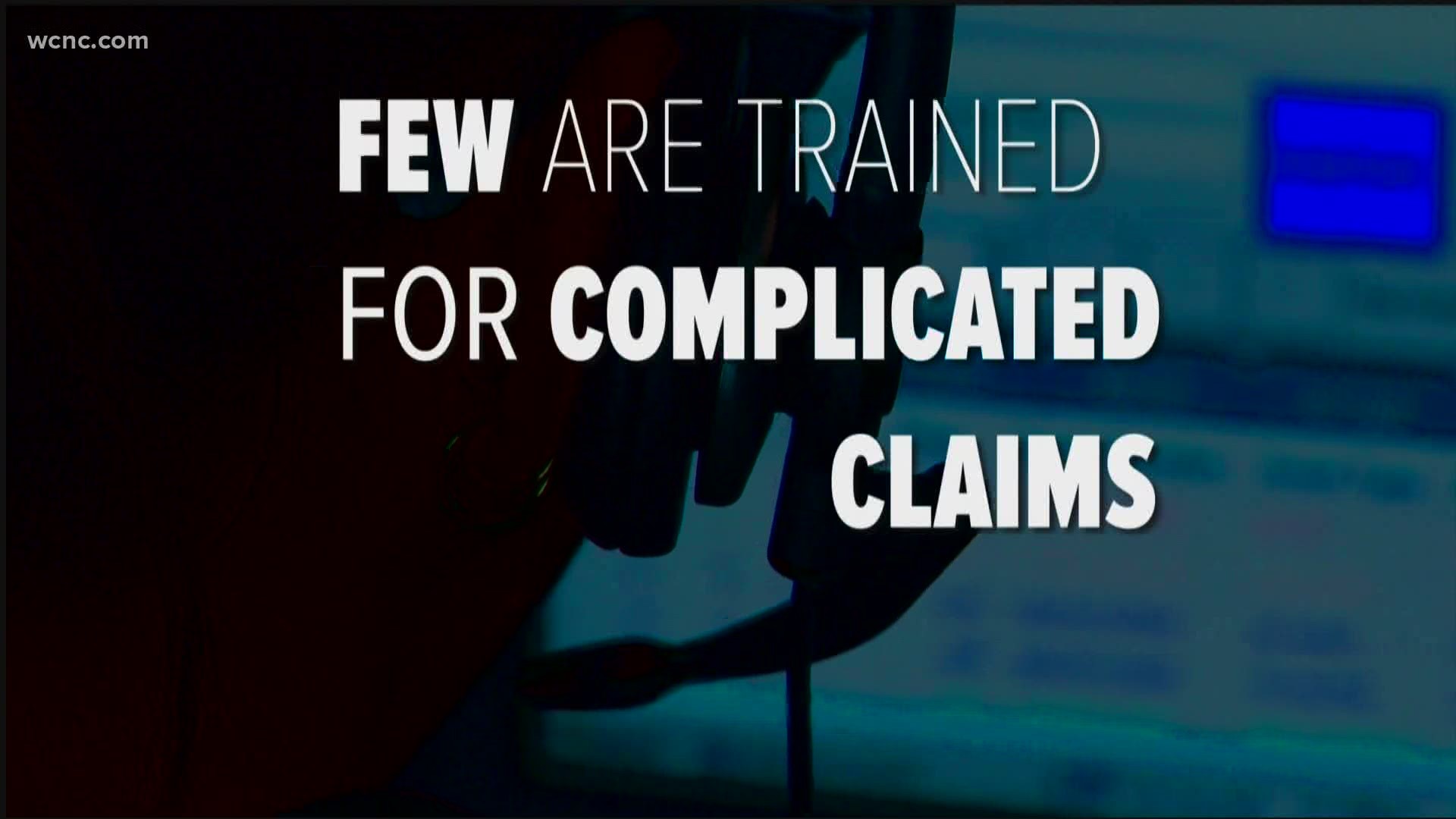CHARLOTTE, N.C. — Of the 3,000 state employees working to get North Carolinians their unemployment benefits, only 400 or 13% are actually qualified to fix complicated claims, according to the Division of Employment Security.
Former DES branch manager Jack Stollery said the lack of specialists is the reason why many escalated claims sit unresolved for so long.
"That's what takes time is to get it to the right person that can look at it and make a decision," he said. "When I was there, we weren't out to keep people from their money. We were there to try and help people do two things: file for unemployment and get a job."
Stollery worked for DES last decade. He said agents mean well, but very few are trained to resolve complicated claims, which results in an incredibly overwhelmed system during unprecedented times,
"When you were there, were there enough people qualified to handle complicated claims?" we asked.
"When the unemployment rate was around 3%, yes, but when the unemployment rate was 5, 6, 8, 10%, no," he replied.
He said adding more qualified specialists who understand the wide range of claims would make a difference.
"That can speed it up considerably," Stollery said.
According to DES, the agency has increased its number of employees qualified to fix claims from 163 in February to slightly more than 400 in July, with the level fluctuating over the last few months.
While the staffing number has more than doubled overall, the number of claims within the first month of the pandemic increased by 5,000%. A spokesperson said depending on the issue, claims are "fixed" in several different ways across different units within the agency.
Mike Davis waited seven weeks for an extension of his unemployment benefits.
"Yes, I am nervous. I don't know what's going to happen," the Charlotte man said in late July. "The savings are just about zero. It is seven weeks of $800 plus that I'm missing."
While he quickly collected his initial 12 weeks of unemployment without a problem, a rare, lengthy delay resulted in a widening financial gap for the laid-off charter bus driver.
Like so many others, Davis said he called DES multiple times, but agents' words didn't match their actions, so he waited.
"I'm frustrated," he said. "I have credit where I could take out loans, but I don't want to do that."
Stollery said during his time at DES, agents tried to get through claims as quickly as possible without sacrificing quality.
"They wanted to get the claims processed, but at the same time, they wanted them processed accurately," he said. "The agency bends over backwards to make sure that they're right when they interpret a claim."
However, Stollery said there was often a tradeoff: a sharp focus in return for less than ideal customer service.
"A lot of people didn't get the warm friendly emotional support with the trauma that they're going through having just been laid off," Stollery said. "It's really, really hard to maintain a certain degree of warmth and compassion for people and also get through the numbers that they have to get through."
For Davis, that kind of compassion goes a long way, especially when it results in action. After hearing his plight, we reached out to the state on his behalf and shortly after, a relieved Davis received his money just in time to pay August's rent.
"Success! I went on the computer and the money's in my account," he told us. "You did in two days what I couldn't do in two months of phone calls."

